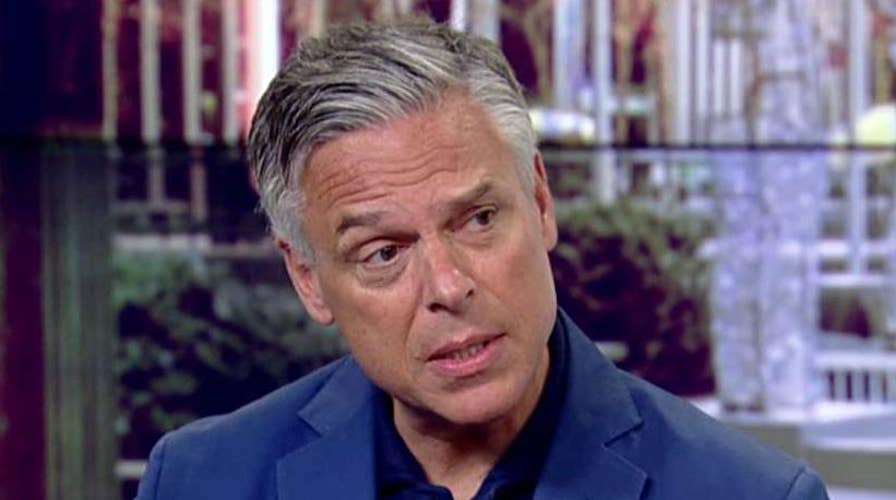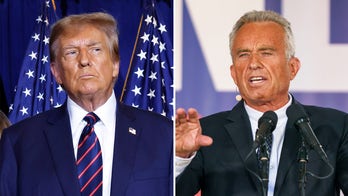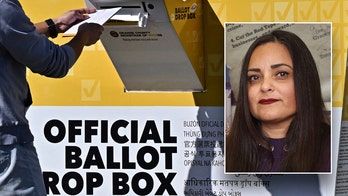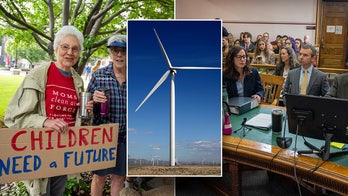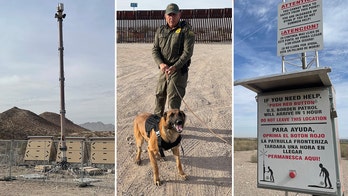Former ambassador to China reacts to Trump's Taiwan call
Jon Huntsman weighs in on 'Fox & Friends'
After criticism about Donald Trump talking with Taiwan’s leader jeopardizing U.S.-China relations, Beijing and a former American ambassador suggested Saturday that Americans have perhaps overacted and that the president-elect's willingness to talk with isolated world leaders doesn’t signal a dangerous foreign policy shift.
Chinese Foreign Minister Wang Yi said the call was "just a small trick by Taiwan" and that he didn’t think it would change U.S. foreign policy toward China, according to Hong Kong's Phoenix TV.
The conversation Friday between Taiwanese President Tsai Ing-wen and Trump, a first-time elected official with no official foreign policy experience, indeed broke with decades-long diplomatic tradition.
Washington has pursued a so-called "one China" policy since 1979, when it shifted diplomatic recognition of China from the government in Taiwan to the communist government on the mainland.
Under that policy, the United States recognizes Beijing as representing China but retains unofficial ties with Taiwan.
Wang also expressed hope Saturday that the call would not “damage” or “interfere with” Washington-Beijing relations.
That Trump might speak directly with Taiwan’s leader is not a huge surprise, considering how during the campaign season he extolled the leadership of Russian President Vladimir Putin and called for a tempered approach to diplomatic relations with the former Cold War rival.
And since winning the Nov. 8 election, Trump has apparently undertaken calls with other foreign leaders without guidance customarily lent by the State Department, which oversees U.S. diplomacy.
On Friday, Trump also took a call from Philippine President Rodrigo Duterte, who has criticized outgoing President Obama and the State Department for raising concerns over his crackdown on illegal drug dealing.
Duterte, who took office in June, has been antagonistic to the U.S., his country’s treaty ally, while reaching out to China and Russia. And he has met Chinese President Xi Jinping twice and Putin once.
John Huntsman, a former American ambassador to China and Utah Republican governor, on Saturday suggested Trump’s call to Taiwan and other such diplomatic outreaches “should be expected,” with Trump being perhaps the most unconventional presidential candidate of a generation.
“We ought to be giving (Taiwan) a little more space,” Huntsman said on Fox News, noting mutual economic, national security and human rights issues.
Arkansas GOP Sen. Tom Cotton said Friday: “I commend President-elect Trump for his conversation with President Tsai Ing-wen, which reaffirms our commitment to the only democracy on Chinese soil. I have met with President Tsai twice and I'm confident she expressed to the president-elect the same desire for closer relations with the United States."
The Democratic National Committee said Friday: “Donald Trump is either too incompetent to understand that his foolish phone call threatens our national security, or he’s doing it deliberately because he reportedly wants to build hotels in Taiwan to pad his own pockets.”
Whether Trump or Tsai initiated their call continues to be an open question, with critics arguing that Trump made the potentially dangerous first move.
Trump tweeted Friday: "The President of Taiwan CALLED ME today to wish me congratulations on winning the Presidency. Thank you!"
However, The Taipei Times is reporting that the Trump team orchestrated the call.
A statement from Trump's transition team said Tsai during the call offered her congratulations to the president-elected.
The statement also said the two leaders discussed their “close economic, political, and security ties” and that Trump, a Republican, congratulated Tsai on becoming president of Taiwan earlier this year.
The Taiwanese presidential office issued a statement early Saturday saying Trump and Tsai discussed issues affecting Asia and the future of U.S. relations with Taiwan.
"The (Taiwanese) president is looking forward to strengthening bilateral interactions and contacts as well as setting up closer cooperative relations," the statement said.
"The president also told U.S. President-elect Trump that she hopes the U.S. will continue to support Taiwan's efforts in having more opportunities to participate in and contribute to international affairs in the future," Tsai's office said.
The White House learned of the conversation after it had taken place, said a senior Obama administration official, who requested anonymity because of the sensitive diplomatic relations involved.
The Associated Press contributed to this report.
